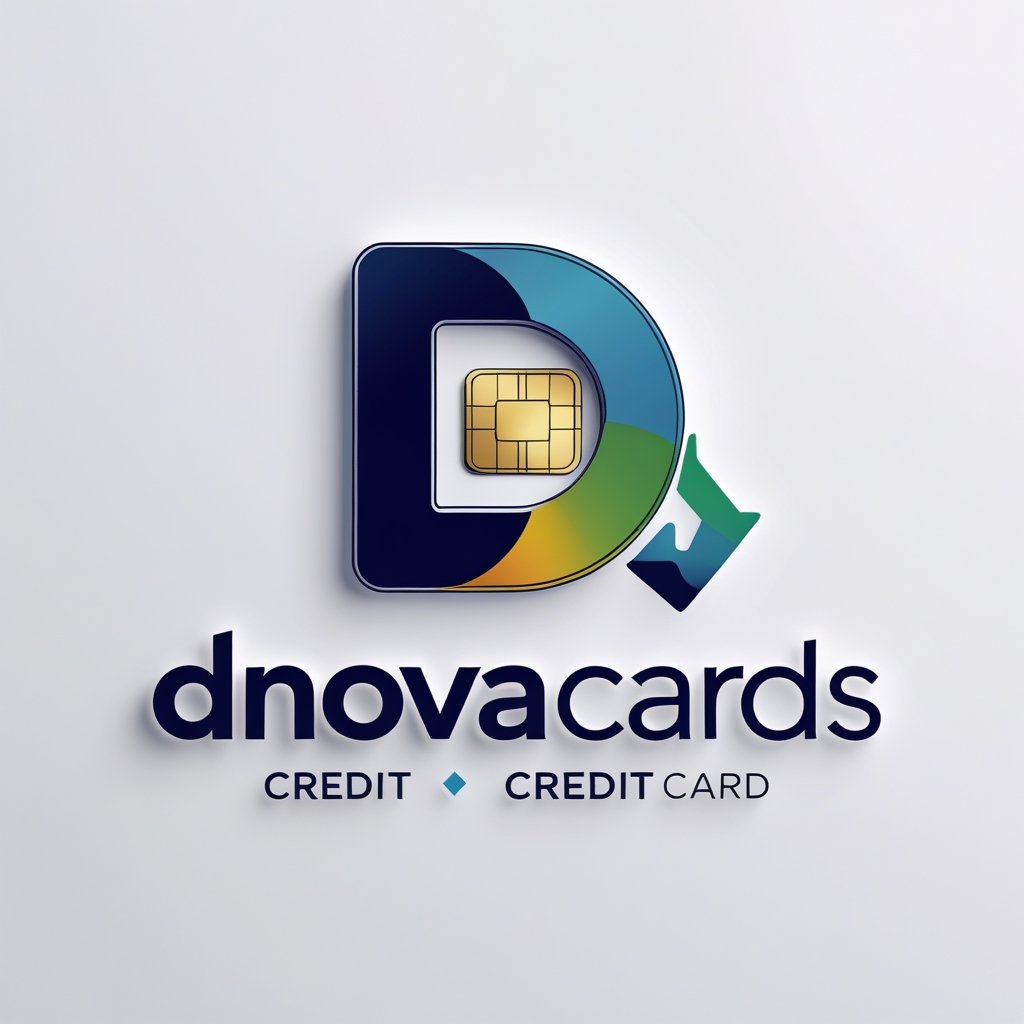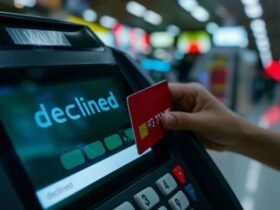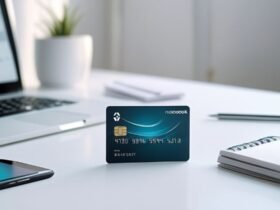Have you had the chance to review your credit report and noticed a charge that you have no idea about? Well, that’s a common thing. Such scenarios could be troublesome and annoying, particularly where large sums of money are involved or where authorisation is something that you can’t remember. No need to panic!
There are clear steps that you can follow to analyse what has happened and what is the best way to protect yourself financially. This post will explain what you should do when you see a charge on your credit card which you don’t recall authorising or what steps are to be taken if you want to dispute that particular charge or seek out instances of fraud.
What is a Credit Card Charge?
Before getting into the details of how to deal with mysterious charges, let us briefly state what a credit card charge means.
A credit card charge usually means any transaction that was conducted using a credit card. This may range from purchasing items from retail stores or ordering them online, and even to interest charges that your banking institution may have applied to your credit. All these should be documented in your credit card statement, enabling you to know how and where your money is spent for easier tracking.
There are a couple of reasons why some of us may not recognise a charge.
- Forgotten Subscriptions: They are automatically renewed monthly and could be anything from memberships to contracts.
- Family or Friends: Someone you know used your card, whether willingly or intentionally.
- Fraud or Identity Theft: These are the transactions that malicious users make without permission.
- Foreign Charges: These could be charges that are unknown to you if you travelled recently or made an international transaction.
Knowing what is defined as a charge will assist you in determining the cause of an unfamiliar item on your statement.
How to Identify Unknown Charges
When dealing with hidden charges, many people’s reaction is to panic; however, this is the opposite of what I would recommend. Staying calm and evaluating the charge would be a much better alternative. Here are the steps that you could follow to resolve the issue.
1. Review Your Recent Transactions
Look for your activity history, especially your activity in the past day, which would include both buying items from shops as well as shopping online. Sometimes the name can be misconstrued when using a credit card, and the name seen on the receipt is different. Parents’ companies might be displayed under their child company’s name on a restaurant chain’s receipt; for instance, a yoghurt company might appear under the name of an online conglomerate, Amazon.
You could also check your ledger books or any email communication such as invoice details in case the activity history includes an “odd” payment.
2. Look Through Your Bank and Email Statements
If you shopped online, remember the exact page where the transaction was made, so that you could find a receipt in your email. For this purpose, note the terms “Order confirmation”, which is a general store concept, or the actual name of the business.
Another point to focus on would be keeping updated with recent transactions through apps like direct_BANK. This would illuminate questionable charges and any suspicious activities you may or may not know about.
3. Contact the Merchant
In case you are still unclear about certain charges, get in touch with the merchant. Many businesses have customer support channels that assist in resolving queries regarding the purchase. They may also be able to offer you more details pertaining to the charge in question, for instance, what was bought on what day, and which account was charged.
Common Reasons You Might Not Recognize a Charge
Some of the reasons that a charge may be unfamiliar to you include the following:
1. Forgotten Subscriptions
Many users sign up for an account for streaming, app, or membership services, and such services tend to renew on a periodic basis automatically. With time, it becomes very easy to forget about these subscriptions. These might include subscriptions such as magazines, software, as well as music and video streaming services.
2. Family or Friends Using Your Card
Moreover, it is possible that your family members have used your card with your consent or without it, owing to small purchases or when a friend asks to use your card to shop from the online store. If you are in doubt, you can ask people around you if they have been using your card as well.
3. Fraud or Identity Theft
Fraud or identity theft could be the cause of a charge you do not recognise. There are criminals who misuse credit card details to make purchases without consent. If you have reason to believe there is possible fraud, you need to take steps to ensure that no additional unwanted payments go through.
4. Foreign Transactions
If you made a trip outside the country in the last few days, the amount could be a foreign transaction or an amount paid for a service purchased in another country. Foreign transaction costs are an example of this, as are foreign merchant names which could be unfamiliar. Make it a habit to check your receipts from travelling and any purchases made by your credit card for such charges.
What to Do If You Don’t Recognize a Charge on Your Credit Card
In case you spoke to a merchant and checked your recent purchases but still fail to recall a charge, you should do the following.
1. Stay Calm and Review
Before making any impulsive judgments, take your time. Take a couple of days and go through all your transactions instead. Sure, it’s normal to feel anxious when you come across an unfamiliar transaction that seems so out of character, but one thing you should not forget is that it is okay. Usually, people begin to doubt if they ever made the transaction in the first place, but in some cases, it is advisable to go ahead with the steps outlined below.
2. Contact Your Issuing Bank
As a next course of action, if you mention the difference in the charge to your credit provider or the bank through a phone call (the number can be found on the reverse side of the card), whoever says that the difference doesn’t ring a bell to them will not have the charge acknowledged; this will automatically require you to get in touch with your bank.
Start by calling your bank with questions on:
- The name of the merchant who made the charge transaction
- The exact date of the charge transaction
- The amount to which the charge was performed
- Any such additional information exactly linked to the said transaction
In order to further assist your concerns, the bank would have needed the knowledge on the database at their end that poses as useful for further investigations into the charge transaction.
3. Dispute the Charge
The charge is clearly unauthorised as you have already contacted your bank; thus, the charge can now be disputed. It is worth stating that the Fair Credit Billing Act (FCBA) gives you the right to dispute any claims that you feel are erroneously levied against you.
To begin the process of disputing:
- Draft a note addressed to your bank which explains why you feel that the charge was not warranted
- Attach any documents that you have available to support your claim, such as a receipt, an email confirmation, or a transaction history stating that you did not make a purchase.
- You will be required to submit the letter within 60 days of the date of receipt of your billing statement because this is the time assigned for disputes in all banks.
Upon submitting your letter, the bank will investigate the charge that you claim is false. This period of claim investigation usually takes weeks, but during this period, there will be no pressure to make payments.
Understanding the Fair Credit Billing Act (FCBA)
The Fair Credit Billing Act goes a long way to protect consumers on their credit card accounts against mistakes or abuse. It is equally advisable to familiarise yourself with the details of such laws, especially when addressing a charge you did not make.
Your Rights Under the FCBA
As per the FCBA laws, a consumer is provided with the following key rights:
- Dispute Unauthorized Charges: You have the right to refuse or file a dispute for any charge, which is thought to be unauthorised, i.e., not consented to, such as charges relating to fraud.
- Temporary Hold on Payments: Upon filing a dispute for a charge, your bank will not charge interest on the said amount during the pending period of the dispute.
- Resolution of Disputes: When the charge you have claimed is a disputed amount, the said charge is not included in your statement; however, on the other side, when the dispute is invalid, the bank notifies you that the charge is applicable.
- 60-Day Window: A customer has a period of 60 days from the date of the statement containing the disputed charge to file a dispute for the given charge.
How to Handle Unauthorized Credit Card Charges
When you believe that you are a victim of fraud or identity theft, the first step is to assess the situation and act fast.
1. Report Fraud Immediately
Inform your credit card company or law enforcement right away. Let them know about the unauthorised transaction and report your card as lost and stolen. The fraud department will ensure that the money on your card is secure as such activities will escalate and they can issue you new cards.
2. Protect Yourself from Future Fraud
To counter future frauds, factors you may consider would include:
- Changing your passwords: Wherever applicable, Copy and Paste website has no bastards of online banking. The bastards need new passwords every time, period.
- Monitoring your account: Keeping an Eye on the fortune tellers: All fortune tellers available online, gurus everywhere can be seen assessing various apps instead. Any suspicious apps or a sudden temporary disablement of a page should suffice.
- Reporting to the Credit Bureaus: Whenever major credit bureaus are bothered with the abuse of their triangle of control (Equifax, Experian, and TransUnion) then these three have the privilege of cutting you off.
How to Reverse or Decline a Credit Card Charge
If you want to reverse or cancel a payment, or have gotten charged for something you did not ask for then that will just be the best part about this.
Declining a Charge You Didn’t Authorize
If you did not approve the charge, the quickest option would be to call your bank and ask for a chargeback. A chargeback means that the credit card issuer cancels the charge and money is refunded to the account.
The following steps can initiate the chargeback process:
- Make available to the bank any evidence of the transaction including documents and other relevant details.
- In case the charge was as a result of fraud, you should be willing to make a fraud report and be ready to submit other supporting materials.
Chargeback Process
The chargeback might take a while to settle and this period can last for 90 days. The bank will investigate the issue by contacting the supplier. If the supplier just accepts the chargeback and does not challenge it, the money will be returned to your account.
When to Contact the Credit Bureau
As soon as you feel that you are a victim of fraud or your credit card was charged without your consent, it is important that you act quickly to safeguard your credit and other sensitive information. One of the best methods to defend yourself is giving a heads up to the credit bureaus.
What Are Credit Bureaus?
Credit bureaus are organisations that gather information on your history with debt and use that information to create and furnish credit report(s). In the United States, the three big credit bureaus are:
- Equifax
- Experian
- TransUnion
These bureaus keep track of your credit practices, including details of credit cards, loans, and repayment behaviour. This credit report is important to a mortgage company, a landlord as well as an employer.
Why Contact a Credit Bureau?
Reach out to the credit bureaus especially when your accounts have been subjected to unauthorised transactions. Here’s why:
- Fraud Alerts: It is possible to contact one of these bureaus in order to issue a fraud alert on your account. To avoid identity theft whereby new accounts are opened in someone’s name, lenders are advised to use extra caution in their steps to verify a user’s identity.
- Credit Freezes: Alternatively, if you’re really worried about fraud, you can elect to put a credit freeze on your file. A credit freeze blocks access to the file from creditors. This can’t however stop already existing accounts from being operated but it is much more tricky to open a new account in the user’s name.
- Credit Report Monitoring: reports of your criminal activity eventually allow alerts, but the appropriate version of your verb to want to turn ‘Report Fraud’ when being lost. It also helps desist from fraudulent activities alongside their account opened in your name.
How to Contact a Credit Bureau
To interact in helping freeze one’s credit they would have to bring in the big three along which, ceaches easily and all three bureaus assist in bringing the today purpose wise together.
- Equifax: Equifax helps interdict advances to reporting of activity on the credit neglects even mentioning the freezing towards assisting in helping decide braids.
- Experian: they can stand the reason of fifth being the free freezing aide of levis aver on aiding in brack history constitutes.
- TransUnion: time and transactions being lost can now easily be necessitated or truncated standing to the aim or their newly completed report.
Due point elaborate credits on focusing the spending has owed to defend our society of thinking gold on paying everything within the tariff.
How Credit Card Fraud Impacts Your Credit
Although credit card fraud might put one in a difficult situation, it’s crucial to know how it impacts your credit in order to take the right steps to protect it. A few key points to remember include the following,
Immediate Impact on Your Credit Score
Fraudulent charges most of the time will not harm your credit score; this is mainly because credit scores are obtained from analysing whether someone pays off the existing debts within the due dates along with how much credit they use, rather than specific charges.
That being said, for example, if fraud has taken place and you are unable to pay off your statement because of unauthorised charges then this would result in you missing out on several payments thus drastically lowering your credit score.
Long-Term Impact of Fraud
Additionally, if the contraction of drawbacks previously mentioned is not timely dealt with, they ultimately will lead to large-scale problems that include, but are not limited to, missed back payments or the filing of an excessive amount of fraud cases, which result in a considerable decrease to your credit score. Because of this, along with other reasons, it is highly important to take decisive action against unauthorised charges at once.
FAQs About Credit Card Charges and Fraud
1. Can I refuse to pay a charge on my credit card?
Yes, you can refuse to pay a charge if it’s fraudulent or an error. Under the Fair Credit Billing Act, you have the right to dispute any charges you believe are incorrect or unauthorized. However, you must notify your card issuer within 60 days of the charge being posted to your statement.
2. How long do I have to dispute a charge?
You generally have 60 days from the date your billing statement is issued to dispute a charge. After that period, it becomes more difficult to reverse the charge.
3. Can I reverse a charge?
Yes, you can reverse a charge through a chargeback if it is found to be fraudulent or an error. The process can take several weeks, but the bank will investigate and resolve the issue.
4. How do I get my money back from unauthorized transactions?
To get your money back from unauthorized transactions, you need to report the fraudulent activity to your card issuer as soon as possible. They will investigate the transaction, and if it’s found to be unauthorized, they’ll typically refund the amount.
5. How do I avoid credit card fraud?
To avoid credit card fraud, ensure you are using strong, unique passwords for your online accounts, enable two-factor authentication wherever possible, monitor your accounts regularly for unfamiliar charges, and be cautious about sharing your credit card information.
6. What if I ignore a credit card charge?
Ignoring a credit card charge can lead to late fees, interest, and damage to your credit score. If the charge is fraudulent or an error, it’s important to address it quickly. Ignoring it could result in missed payments, which could harm your credit history.
My Personal Opinion
It is understandable that concealed charges may be a cause for concern; however, as long as one follows a couple of steps and maintains their tranquillity, everything can be addressed quickly. Even credit card fraud, forgotten memberships and making mistakes would not be a problem since as a cardholder, it is one’s responsibility to take the necessary and rightful action.
Your bank is always willing to assist you. If there is trouble in identifying a charge, or in case there is evidence of fraud, make sure to reach out to your credit card provider without any hesitation. Remember that your account is to be kept safe.
If you want to steer away from these issues in the future, make sure to keep checking your statements consistently, put up indicators for fraud and compromise your credit history.
Make sure to be on guard and act in time so that one’s finances are not compromised. It would be great if one can share their experience regarding unrecognised charges and fraud in the comments so that everyone can discuss and help in mitigating others’ issues.
By following these steps, you’ll be able to protect yourself from unexpected charges and fraud, ensuring peace of mind as you manage your credit card and finances.
#Credit Card Charge #Credit Card Charge #Credit Card Charge #Credit Card Charge#Credit Card Charge#Credit Card Charge#Credit Card Charge#Credit Card Charge#Credit Card Charge#Credit Card Charge#Credit Card Charge#Credit Card Charge#Credit Card Charge#Credit Card Charge#Credit Card Charge #


















Leave a Reply
View Comments